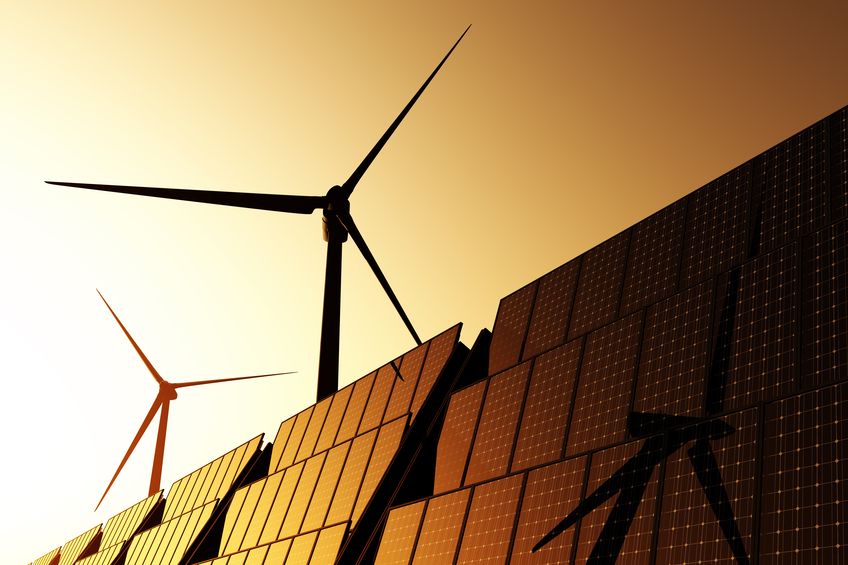
Wind & solar industries crushed by COVID-19
By Ronald Stein
The only good news about the COVID-19 social change impacts on our lifestyles is that the travel bans, and lockdowns have cleaned the globe, flushing the murk from Venice’s canals, and we have seen cleaner air worldwide.
Seeking to cash in on America’s response to the coronavirus crisis its wind and solar power outfits tried to snare $billions out of the Trump administration’s $2 trillion coronavirus aid package. But to no avail. Congress is likely to continue to focus on injection of broad economic aid to workers and small businesses. The massive and endless subsidies for wind and solar electricity are likely to be put off until later legislation.
Far from being “essential”, heavily subsidized, and chaotically intermittent wind and solar, and the fleeting jobs those industries create, are starting to look like wasteful luxuries that mega economies like that in Germany, Australia, and America can ill afford.
We have seen a serious reduction in the usage of the transportation infrastructures of airlines and cruise ships, as well as automobiles and trucks, and their impact on the leisure and entertainment industries, all to avoid crowds.
Along with those transportation options available for society, we have virtually eliminated the billions of vehicle trips to and from airports, hotels, ports, and amusement parks that have been increasing each year. COVID-19 has shown us that society changes can reduce the demand of those growing numbers.
Yes, we may have been using fossil fuels too extensively for leisure and entertainment, but the developed world is where it is today, healthier and wealthier, because of all those products we get from those oil derivatives.
Despite the preaching’s about the renewable electricity saviors of wind and solar, it’s becoming obvious that due to their intermittency and unreliability, and their inability to replace any of the derivatives from petroleum that account for the all the products in our daily lives, societies around the world may not be too thrilled about continuing the current social changes to live on just electricity from wind and solar. Remember the Great Horse Manure Crisis of 1894 in London, before fossil fuels?
Beyond the energy stability needed in hospital settings, the products produced from petroleum are what enables the heroic healthcare workforce. Products such as the critical medical equipment like ultrasound systems, ventilators, CT systems, and X-ray, personal protection equipment, medicines, masks, gloves, soap and hand sanitizers that we urgently need now would not be available without traditional fossil fuel energy and the derivatives from petroleum that provide thousands of products for our lifestyles.
The zero greenhouse gas emissions from industrial wind turbines and solar panels are ambitious goals for just electricity, but the economic and employment upheaval from shutting down traditional energy development is likely catastrophic financially. The climate solution proposals for wind and solar electricity are idealistic, unrealistic, and overly dependent on unproven technologies. This creates a fork in the road in terms of how we address our energy future.
Before COVID-19, the airlines that did not exist before 1900, transported more than four billion passengers in 2017 around the world and were projecting 7.8 billion airline passengers by 2036. Cruise ships which also did not exist before 1900 moved 25 million passengers around the world every year.
To meet lower emission targets, we’ll need to continue to reduce the transportation demands of society and COVID-19 may be showing us how we’ll need to retract from our extravagant usage of the various transportation systems that did not exist before fossil fuels.
Before fossil fuels and the thousands of products made from petroleum derivatives, and electricity that followed the discovery of oil, the world was a zero-sum snake pit that was a war against one another scrounging for food, water, and shelter. In the 1800’s most people never traveled 100-200 miles from where they were born. Life expectancy throughout Europe hovered between 20 and 30 years of age.
The social lifestyles before 1900 had no such transportation choices, as they had no autos, planes, or cruise ships for transportation. The inventions of the automobile, airplane, and the use of petroleum in the early 1900’s led us into the Industrial Revolution. Crude oil, natural gas, and coal changed – for the better – the lifestyles of every person living in developed countries such as, the U.S., Europe, Japan, South Korea, and Australia.
The concept of electricity alone, from wind and solar industries has been exposed by COVID-19 as they are unable to support militaries, aviation, and merchant ships, and all the transportation infrastructure that support commerce around the world. Our future existence may be less vacations and less business conferences. Additionally, reductions in the usage of the entertainment and hospitality industries, neither of which existed before fossil fuels, may also be necessitated.
As we continue to emphasize the need for conservation and great efficiencies as the world weans itself from overuse of fossil fuels, we will need to lower our demands for transportation infrastructures. COVID-19 has shown us the way and has communicated why the wind and solar industries for just electricity have been crushed by COVID-19.
Ronald Stein
Ron Stein is an engineer who, drawing upon 25 years of project management and business development experience, launched PTS Advance in 1995. He is an author, engineer, and energy expert who writes frequently on issues of energy and economics.
From cfact.org